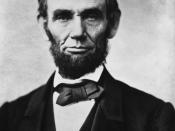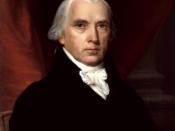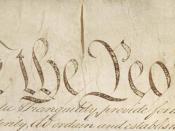Benjamin Franklin
According to legend, as the exulted Benjamin Franklin stepped out of the last session of the Constitutional Convention in Philadelphia in September of 1787, a curious woman queried, "What kind of government have you given us, Dr. Franklin?" Franklin answered, "A Republic, Madam, if you can keep it."1 Remarkably, over 200 years later, the United States has kept its constitution, and the republic for which it was created has flourished. While fledgling democracies across the continents have modeled the frameworks of their governments after the U.S. Constitution, America's system of democracy remains spectacularly unique and successful, largely due to its constitution. The framers of the Constitution created an adaptable instrument of government which withstands the test of time through a system of checks and balances and separation of powers.
At the Constitutional Convention, the framers set out to develop a form of government stronger than a confederation; it could not be unitary though, otherwise the states would not ratify it.
They borrowed ideas from both of these forms of government to form a federal republic. Once federalism was decided upon to unify the states without constraining them, the next step in developing a lasting constitution was creating a separation of powers. James Madison wrote in The Federalist, No. 47, "No political truth is certainly of greater intrinsic value, or is stamped with the authority of more enlightened patrons of liberty, than that ... the accumulation of all powers, legislative, executive, and judiciary, in the same hands ... may justly be pronounced the very definition of tyranny."2 The framers ingeniously wove into the Constitution three ways to ensure a clear separation of powers among the three branches of government. First, the leaders in the different branches come to power in different ways; the president is elected through a national...


